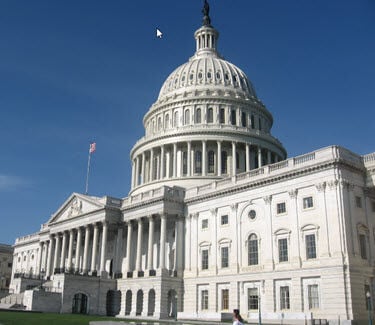INSIDE RADIO
Broadcasters, News Publishers, And Internet Ad Sellers Get Behind New Digital Privacy Rights.

The National Association of Broadcasters is throwing its support behind a digital privacy rights proposal, that if approved by Congress would let Americans opt out of targeted advertising. The NAB says it likes the idea that the American Privacy Rights Act would create a unified national privacy standard.
“This discussion draft is an important step towards much-needed legal clarity for America’s hometown broadcasters amidst a patchwork of state laws as we engage with our audiences online,” NAB President Curtis LeGeyt said.
Senator Maria Cantwell (D-WA) and Rep. Cathy McMorris Rodgers (R-WA), released a draft of their American Privacy Rights Act earlier this month. It is designed to give Americans more control over their personal data, including putting limits on a company that wants to transfer or sell their data. It would require companies to allow people to gain access to the data that tech companies have collected about them and to correct and delete what they find. The bill would also offer stricter protections for sensitive data by requiring affirmative express consent before sensitive data can be transferred to a third party. Individuals could also opt out of data processing if a company changes its privacy policy.
If passed, the American Privacy Rights Act would minimize the data that companies can collect, keep, and use about people, of any age, to what companies need to provide them products and services. It would also allow individuals to opt out of a company’s use of algorithms to make decisions about housing, employment, healthcare, credit opportunities, education, insurance, or access to places of public accommodation. And it would give individuals the right to sue bad actors who violate their privacy rights—and recover money for damages when they’ve been harmed.
Supporters say the effort is targeted toward big tech companies, carving out small businesses, who are not selling their customers’ personal information, to make them exempt from the requirements of the bill. They include a mandatory annual review of algorithms to ensure they do not put individuals at risk of harm or discrimination.
“As the power of the Big Tech companies often goes unchecked, we are grateful for Chairs Cantwell and McMorris Rodgers' ongoing commitment to providing a more sustainable digital ecosystem for local journalism,” LeGeyt said in a statement. “We look forward to working closely with the Chairs and all their Congressional colleagues as this important discussion continues.”
The News/Media Alliance has also come out in favor of the proposal. The group, which represents more than 2,200 publishers, also sees a benefit in having the certainty of a workable federal data protection framework, saying that would benefit news publishers and consumers alike. Alliance President Danielle Coffey says the discussions prompted by the release of the draft come at a critical time for technology policy.
“The draft proposes new approaches to long-standing issues,” Coffey said. “The discussion draft rightfully acknowledges the heightened, often troubling, impact that large technology companies can have in how they use consumers’ data and raises the importance of advertising in sustaining services that benefit consumers, including ad-supported news media content.”
It is not just media companies that are onboard with the changes. The Interactive Advertising Bureau, whose members include publishers, agencies, and ad tech firms, says they are counting on a national data privacy law to replace an increasingly complex patchwork of state laws, which have the effect of raising costs for companies of every size.
“This proposal provides exemptions for small businesses relying on data and digital advertising to compete in today’s economy, and it reflects a majority of state laws requiring opt-out mechanisms for consumers who may not want personalized ads or content,” said Lartease Tiffith, IAB’s Executive VP for Public Policy. However, Tiffith says it is also important that the bill fully preempt state laws to create a uniform national code.
“A private right of action could create a flood of lawsuits, so it’s important that the language be airtight,” Tiffith said. "Companies should have at least a year to comply before enforcement starts.”
No comments:
Post a Comment